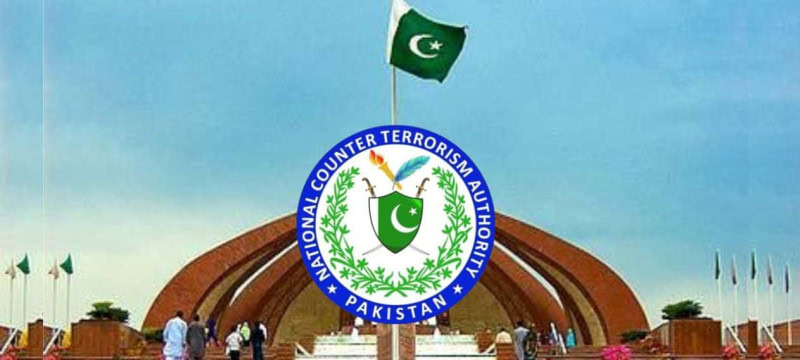Established in 2008 and gaining operational momentum in 2013, the National Counter Terrorism Authority (NACTA) in Pakistan stands as a pivotal body aimed at crafting strategic guidelines for combating terrorism within the nation. With its prime focus on bolstering inter-agency coordination, NACTA endeavors to fortify Pakistan’s defense against the escalating specter of terrorism.
Understanding NACTA’s Mandate
At its crux, NACTA is tasked with formulating a robust blueprint to counteract terrorism, fostering synergy among the diverse agencies dedicated to this cause. The pressing need for NACTA’s intervention has been propelled by the alarming surge in terrorist activities across Pakistan. As mandated by the law, the Authority is entrusted with the following duties:
- Gather, compile, and share intelligence and information among stakeholders to formulate regular threat assessments for the Federal Government’s strategic anti-terrorism efforts.
- Coordinate and draft comprehensive national strategies for counter-terrorism and counter-extremism, subject to periodic evaluation.
- Develop and execute action plans against terrorism and extremism, periodically reporting the progress to the Federal Government.
- Undertake research on pertinent topics concerning terrorism and extremism, preparing and disseminating associated documentation.
- Foster international collaboration, liaising with global entities to facilitate cooperation in counter-terrorism and extremism-related areas.
- Evaluate existing laws, recommending amendments to the Federal Government as deemed necessary.
- Appoint committees comprising experts from governmental and non-governmental organizations to deliberate on matters pertinent to the Authority’s mandate and functions.
Internal Strategy Development: A Shield Against Terror Incidents?
One primary yardstick for assessing NACTA’s efficacy lies in its ability to architect a comprehensive internal strategy aimed at preempting terrorist incidents. Has NACTA managed to construct an intricate yet efficient framework that preempts and mitigates potential threats? Understanding the intricacies of their internal strategies unveils the resilience of their preventive measures.
Bridging the Gap: Coordination Among Intelligence Agencies
A key cornerstone of NACTA’s effectiveness rests in its proficiency to foster harmonious collaboration among the manifold intelligence agencies operating within Pakistan. The success of joint counter-terrorism strategies hinges on seamless coordination and information sharing. How successful has NACTA been in weaving together these intricate threads of intelligence? In January 2019, the UNODC Country Office Pakistan partnered with the National Counter Terrorism Authority (NACTA) to host dual Joint Investigator-Prosecutor Workshops in Lahore and Karachi. These workshops convened officers from various federal and provincial law enforcement agencies, encompassing Counter Terrorism Departments (CTDs), the Intelligence Bureau (IB), Inter-Services Intelligence (ISI), Military Intelligence (MI), Provincial Prosecution Departments, and the Federal Investigation Agency (FIA).
International Collaborations: NACTA’s Global Outreach
Terrorism knows no borders, prompting the need for global alliances. Does NACTA boast adequate ties and robust collaboration mechanisms with foreign counter-terrorism agencies? Assessing NACTA’s international footprint unveils the depth of its global partnerships and their contribution to Pakistan’s counter-terrorism efforts.
The Tehrik-e-Taliban Pakistan’s (Fazlullah faction) brutal attack on the Army Public School triggered the inception of the National Action Plan (NAP), a cornerstone policy blueprint in Pakistan’s fight against terrorism. Spearheading this policy, the National Counter Terrorism Authority (NACTA) emerged as a pivotal coordination body, aligning security and law enforcement efforts under the NAP’s umbrella. Its multifaceted strategies, encompassing soft approaches, have yielded some positive outcomes.
Strengthening Internal Strategy for Preventing Terror Incidents
NACTA’s efficacy is gauged by its internal strategy’s robustness in precluding and managing potential terror threats. The organization’s intricate preventive measures serve as a litmus test for its effectiveness in combating terrorism at its roots.
Facilitating Coordination Among Intelligence Agencies
The success of joint counter-terrorism strategies hinges on seamless coordination and intelligence sharing among Pakistan’s diverse intelligence agencies. NACTA’s role in orchestrating this coordination defines its success in executing collective counter-terrorism strategies.
Global Collaborations in Countering Terrorism
NACTA’s proactive engagement with foreign counter-terrorism agencies is pivotal in bolstering Pakistan’s defense against terrorism. Assessing its international collaborations unveils the depth of its global partnerships and their impact on Pakistan’s counter-terrorism efforts.
Empowering the Criminal Justice System (CJS)
Proposed amendments, such as the Criminal Laws Amendment Act 2016, and efforts to rejuvenate all facets of the CJS, including police, prosecution, judiciary, and prisons, depict NACTA’s comprehensive roadmap for CJS refurbishment.
Countering Terrorism Financing
NACTA’s proactive steps in drafting a bill for charities’ regulation and partnering with the Pakistan Centre for Philanthropy demonstrate its commitment to curb terrorism financing. Collaborations with multiple agencies aim to regulate cross-border cash movement and enhance vigilance in banking sectors.
Engaging Madaris and Tackling Cyber-Terrorism
Efforts to engage Madaris in combating extremism and initiatives like Cyber Security and ICT Directorate emphasize NACTA’s diverse approaches. The Tat’heer Drive, a cyber-counter-terrorism strategy, illustrates its multifaceted endeavors in cyberspace.
National Narrative and Counter-Extremism Policy Guidelines
The formulation of the National Narrative on extremism and the development of Counter-Extremism Policy Guidelines signify NACTA’s commitment to ideological warfare against extremism.
Challenges and Road Ahead
Despite these strides, NACTA faces challenges in operational effectiveness, political ownership, and financial support. Addressing issues within the police departments and fostering greater inclusivity in task forces are crucial for enhanced performance.
Prime Minister’s Directive and the Future Outlook
Prime Minister Imran Khan’s recent directive to review NACTA’s role reflects the government’s commitment to revamp the organization. It’s an opportunity for NACTA’s rejuvenation, aligning with the evolving security landscape.
Conclusion: NACTA’s Journey and Ongoing Efforts
NACTA’s journey has been a mixed bag of achievements and challenges. While it’s taken significant steps in various domains of counter-terrorism, operational efficiency, collaboration among agencies, and policy implementation need focus.
The road ahead demands a multifaceted strategy, involving a whole-of-government approach, effective collaborations, and grassroots engagements. Only through concerted efforts can NACTA realize its full potential in securing Pakistan against the multifaceted threat of extremism and terrorism.
In the quest for answers to these pivotal questions, a closer inspection of NACTA’s endeavors emerges as a beacon illuminating the path towards a safer, more resilient Pakistan.





